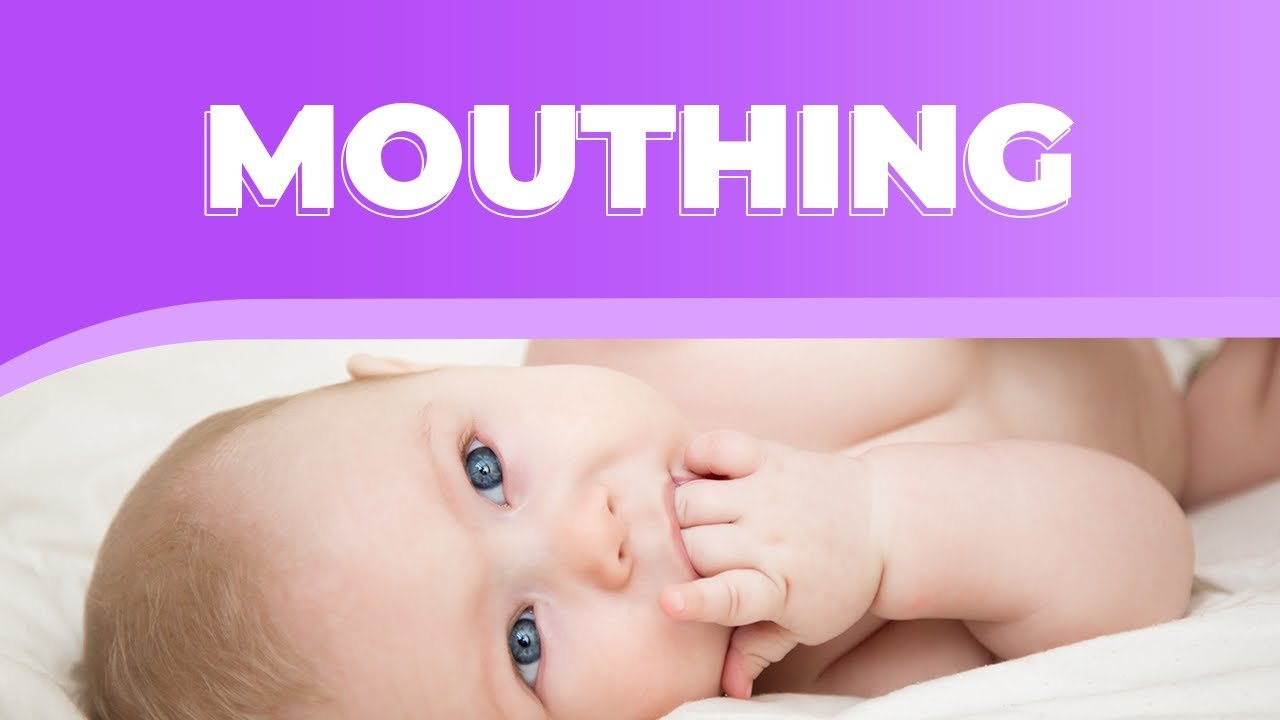Concerned about your baby constantly putting everything in their mouth? From sucking fingers and toys to thumb sucking, there are various reasons why babies engage in this behavior. In this video by Emma Hubbard, you’ll explore the different motives behind baby mouthing and learn when to be concerned, along with developmental milestones for 0-12 months old. As a pediatric occupational therapist and mother of two, Emma shares her expertise on why babies mouth everything, offering peace of mind and valuable parenting tips.
One common reason for baby mouthing is hunger; sucking on fingers or toys can indicate hunger in newborns. Additionally, babies engage in this behavior to calm and soothe themselves, releasing relaxing hormones like dopamine and serotonin. As babies explore and play with their hands and toys, they also mouth them to learn about texture, taste, and temperature. This natural behavior is part of their development and should not be a cause for concern, according to the American Dental Association. Teething can also be a reason for baby mouthing, as chewing on toys or a cool cloth can help relieve discomfort. With Emma’s insights and guidance, you can better understand your baby’s mouthing behavior and ensure their well-being.

Reasons for Baby Mouthing
Babies engage in mouthing behaviors for various reasons, each serving a vital purpose in their development and well-being. Understanding these reasons can help parents navigate this common behavior with ease and confidence.
Hungry
Indicating hunger
In the early months of life, babies often put their hands, fingers, or toys in their mouth to show signs of hunger. Mouthing serves as a signal to caregivers that the baby needs nourishment. This natural instinct helps babies communicate their needs effectively.
Soothing activity
Apart from signaling hunger, mouthing also acts as a soothing activity for babies. Sucking on fingers or toys can provide comfort and emotional security, especially in stressful or overwhelming situations. The rhythmic motion of sucking can induce a sense of calm and relaxation.
To Calm and Soothe
Release of calming hormones
When babies suck their thumbs or fingers, the brain releases hormones like dopamine, serotonin, and endorphins. These hormones are associated with relaxation and happiness, promoting a sense of well-being and comfort in the baby. Mouthing serves as a self-regulating mechanism for babies to manage stress and anxiety.
Self-soothing technique
Thumb sucking and finger sucking are common self-soothing techniques that babies employ to comfort themselves. This instinctual behavior begins in utero and continues into infancy and early childhood. Babies use this method to fall asleep, reduce tension, and regulate their emotions.
Explore and Play
Learning about textures and tastes
Mouthing allows babies to explore and learn about their environment. By putting various objects in their mouths, babies can understand different textures, tastes, and temperatures. This sensory exploration aids in cognitive development and sensory processing skills.
Development of fine motor skills
As babies grow and develop, mouthing helps in refining their fine motor skills. Holding and manipulating toys or objects with their hands and then bringing them to their mouths enhances hand-eye coordination and dexterity. This coordinated movement is essential for later stages of physical development.
Teething
Teething timeline
Teething typically begins around four to ten months of age when the first set of teeth start to emerge. This process can be uncomfortable and painful for babies, leading them to seek relief through mouthing behaviors. The urge to chew on objects helps alleviate the discomfort caused by teething.
Pain relief options
To alleviate teething pain, caregivers can offer babies teething rings or toys specifically designed to soothe sore gums. Alternatively, a cool damp cloth or gentle massage on the gums can provide relief. In severe cases, pediatricians may recommend pain relief medication suitable for infants.
Thumb Sucking
Effects on oral development
While thumb sucking is a common practice in early childhood, prolonged and vigorous thumb sucking can affect oral development. Excessive thumb sucking may lead to dental issues, such as misaligned teeth or jaw problems. Monitoring thumb sucking habits and intervening when necessary can prevent potential complications.
When to gently discourage thumb sucking
Parents can gently discourage thumb sucking around the age of four when permanent teeth start to emerge. Encouraging positive habits and offering praise for not sucking thumbs can help children break the habit gradually. Most children naturally outgrow thumb sucking between the ages of two and four.
Finger Sucking
Similarities to thumb sucking
Finger sucking is similar to thumb sucking in terms of its soothing and self-soothing benefits. Babies may suck on multiple fingers or even their fists as a means of comfort and relaxation. This behavior is typically observed in younger infants and tends to diminish as they grow older.
Age of cessation
Similar to thumb sucking, finger sucking often resolves on its own as children reach the age of two or four. As fine motor skills develop and other self-soothing strategies are acquired, babies may naturally discontinue finger sucking. Parents can provide alternative comfort measures to support this transition.
Mouthing Toys
Toys as exploration tools
Toys play a crucial role in babies’ sensory exploration and cognitive development. Mouthing toys allows babies to engage their senses, develop tactile awareness, and learn about cause and effect relationships. Providing safe and age-appropriate toys encourages healthy play and learning experiences.
Development of sensory skills
Mouthing toys contributes to the development of babies’ sensory skills, including touch, taste, and sound. By actively engaging with toys through mouthing, babies enhance their ability to process sensory information and adapt to new experiences. Sensory play promotes cognitive growth and fosters curiosity and creativity.
Conclusion
Multiple reasons for baby mouthing
Babies engage in mouthing behaviors for a variety of reasons, including hunger signaling, soothing, exploration, and teething relief. Understanding these motivations helps caregivers respond effectively to babies’ needs and promote healthy development.
Importance of cleanliness and hygiene
While baby mouthing is a normal and beneficial behavior, ensuring cleanliness and hygiene is essential. Regularly washing hands, toys, and objects that babies mouth helps prevent the spread of germs and maintain a safe environment for infants. By prioritizing cleanliness, caregivers can support babies’ healthy growth and development.

